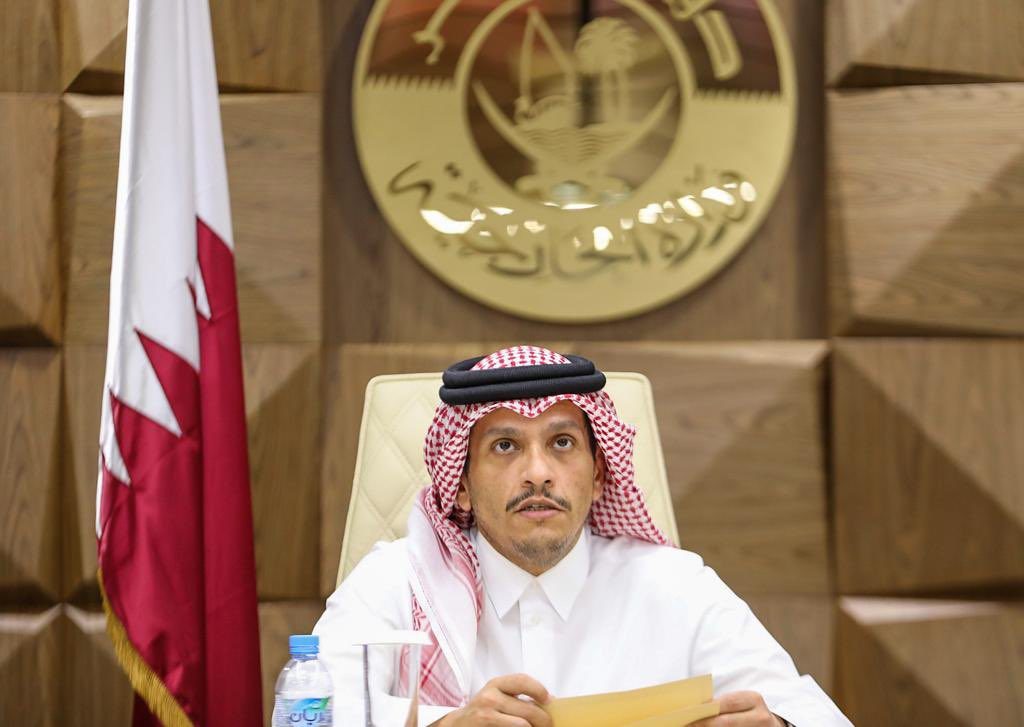The former blockading countries initially announced the embargo on Qatar due to the its relations with Iran and Turkey.
Qatar will maintain its relations with Iran and Turkey despite the lifting of the embargo imposed on Doha in 2017, Doha’s Minister of Foreign Affairs Sheikh Mohammed bin Abdulrahman Al-Thani told the Financial Times.
The blockade that triggered the Gulf crisis over three years ago was imposed on Qatar due to its relations with Iran and Turkey, both of which have had their own political rivalries with Saudi Arabia and the United Arab Emirates.
Al-Thani said Doha and Riyadh, which has served as the representative of the Quartet in negotiations with Qatar, agreed to cooperate on counter-terrorism and “transnational security”.
“Bilateral relationships are mainly driven by a sovereign decision of the country . . . [and] the national interest…so there is no effect on our relationship with any other country,” the Qatari official told The Financial Times.
The remarks came after the “historic” signing of the “landmark” Al Ula declaration in Saudi Arabia on Tuesday.
In a December statement made during the Qatari-Saudi negotiations, the foreign minister also called for Iran-GCC dialogue while welcoming all peace initiatives, reiterating Doha’s role in ensuring peace in the region.
Read also: Full diplomatic relations to be restored between Qatar, blockading GCC states
In 2017, the blockading quartet issued a list of 13 demands for Doha that included ending its relations with Iran and closing the Turkish military base. Qatar categorically rejected the list and accused the quartet of attempting to threaten Doha’s sovereignty.
Three years later, the Al-Ula Declaration now stipulates all signatories of the deal will not interfere in the internal and external affairs of other nations, nor will they pose a threat to their stability.
“It will take some steps among the countries to rebuild the relationship . . . there will be differences, some outstanding issues that will be discussed bilaterally between the countries,” said Sheikh Mohammed. “Each country has a different set of disagreements with Qatar.”
Commenting on the list of demands this week, the United Arab Emirates foreign minister, Anwar Gargash admitted they were a “maximalist negotiating point” designed to apply pressure on Doha.
“This is something that we have always said – that the 13 demands, at the time, were considered, what I would call, a maximalist negotiating position,” the UAE’s FM said on CNN.
Qatar and Saudi Arabia reached a deal at the start of the year to end the years-long dispute that caused a severe fracture to the GCC bloc.
In exchange for lifting the illegal air, land and sea blockade on Qatar, Doha is alleged to drop legal charges against the blockading countries, including those at the World Trade Organization and the International Court of Justice.
“When it comes to the proper timeline, then these legal cases should be closed,” said Qatar’s foreign minister said.
The landmark Al-Ula deal included the formation of strategic partnerships with regional and international partners to enhance the GCC’s role with the international community.
But more crucially, the three-year dispute separated residents of all countries involved, many of which were forced to return to their home nations after ties were severed. The declaration removes such obstacles and ensures a full lifting of travel restrictions imposed.
Follow Doha News on Twitter, Instagram, Facebook and Youtube







